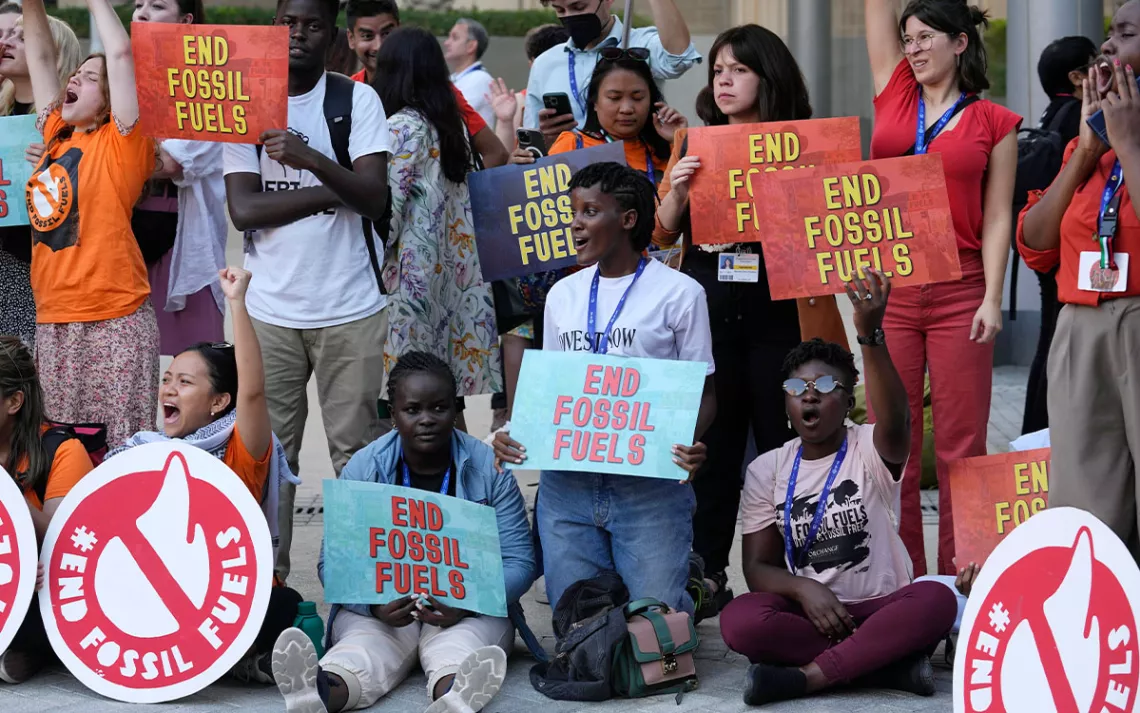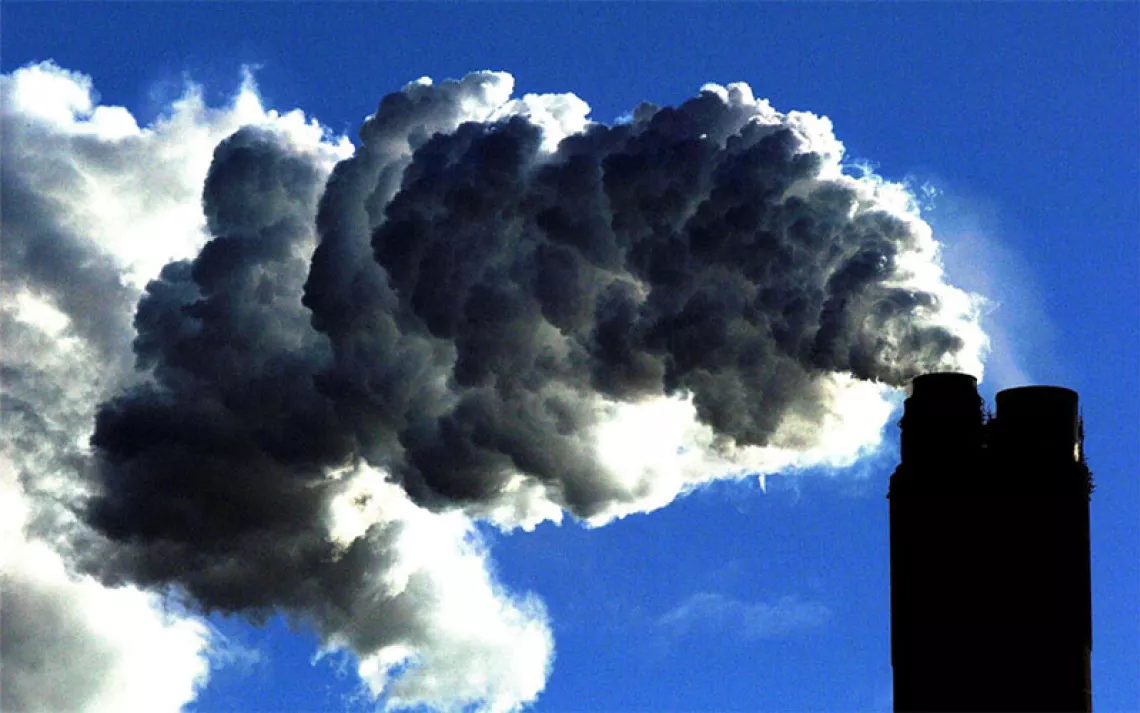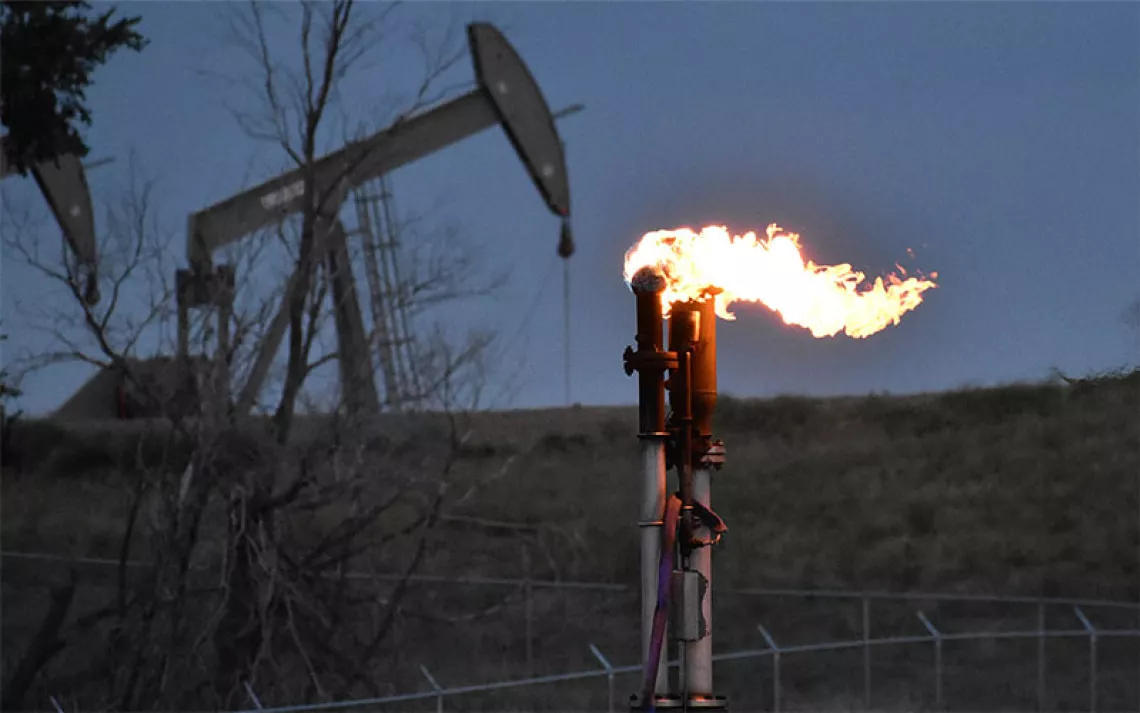Overcoming the Oil and Gas Industry’s Influence at COP28
If we’re going to phase out fossil fuels, we need to get the oil giants out of the room

Vanessa Nakate of Uganda, center, takes part in a protest against fossil fuels at COP28. | Photo by Rafiq Maqbool/AP
Distributed by Trice Edney Newswire
Frederick Douglass said, “Power concedes nothing without a demand. It never did and it never will.” Those of us with history in the civil rights movement know that taking on entrenched power and changing the status quo requires dogged tenacity and seizing key moments to break down barriers.
The United Nations COP28 summit going on right now in Dubai could be one of those key moments for tackling the climate crisis. To ensure we truly create a better world for us all, we must include the participation of every country. The biggest obstacle we face is the entrenched power and stubborn influence of the fossil fuel industry—the very cause of the greenhouse gas emissions that are driving global warming. The industry has had a stranglehold on international climate talks and, this year, is showing up to the conference in greater force than perhaps ever before.
Hundreds of oil and gas industry lobbyists usually descend on the COP conferences. This year, by some unofficial estimates from reporters and watchdog groups, it looks like the number of lobbyists and industry representatives could be more than double what it was at last year’s COP27 in Egypt. The purpose of the UN climate summit is to assess and improve global efforts to curb global warming. The only way to do that is by drastically reducing emissions—far more than we’re already doing—and that means completely phasing out all fossil fuels.
Two reports released late last month, one by the UN and one by the Rhodium Group consulting firm, reached the same conclusion: The most likely projected temperature increase by the end of this century will be about 3°C (5.4°F) based on current trends. Scientists say that any increase over 2°C (3.6°F) would be catastrophic. And the current trajectory puts us well above the 1.5°C (2.7°F) target established by the landmark Paris Agreement from COP21 in 2015.
Added to the backdrop of these international negotiations is that this is the hottest year on record, with resulting floods, fires, superstorms, and other extreme weather events impacting humanity in increasingly undeniable ways.
With the urgency so crystal clear, there’s no way that the industry driving the climate crisis should be empowered to the degree it is to protect its own profits at the expense of our planet. By allowing oil and gas companies to have so much power and influence in climate talks, we’re pulling our punches against the greatest existential threat faced by humanity, all to spare those companies a threat to their bottom line.
Of course, plenty of controversy has swirled around the lead-up to this year’s COP summit. There’s been no shortage of newspaper ink, and website pixels, dedicated to commentary about the host country, the United Arab Emirates (UAE), being a nation built on oil. UAE is part of OPEC—which has played a significant role in obstructing progress in past climate negotiations—and has an oil and gas company that is one of the largest in the world, the Abu Dhabi National Oil Company, or ADNOC. And the CEO of ADNOC, Sultan Ahmed al-Jaber, is serving as president of this year’s summit.
Having an oil baron at the helm of the world’s most important event focused on curtailing greenhouse gas emissions is an irony that’s been hard to swallow for many. At the organization I lead, the Sierra Club, we decided to send a delegation to COP28 anyway, in the spirit of hope and determination, as this is a cause too great and too important to be deterred from our efforts—no matter how many foxes are let into the henhouse.
A larger concern of mine has been the voting rules. UN climate talks require all parties involved (in this case, 197 countries plus the European Union) to be unanimous on the adoption of any agreement. On its face, the requirement for consensus agreement is a way to add greater legitimacy to the conference’s outcomes and ensure that Global South countries, and those most drastically impacted by the climate crisis, have an equal say. However, it also means that a single oil-and-gas-rich country, or a small group of them, has veto power over any agreement. It’s a structural weakness of these summits that has been exploited for decades by oil-and-gas-rich nations (including the United States) to impede progress.
Just think about how much power that gives an industry that spends hundreds of millions of dollars a year in lobbying? Even if every government on the planet was in basic agreement on some new framework or commitment, fossil fuel companies would only need to convince—or co-opt—the leaders of a single nation to have a game-ending proxy vote.
It’s no surprise that the fossil fuel industry is focused on securing its own future and increasing its wealth. However, that focus is completely at odds with the entire purpose of climate talks like COP28, which is supposed to be the health and well-being of humanity and protecting our fragile planet. To have oil and gas interests influencing global climate talks undermines the whole endeavor.
For now, we maintain hope that the gravity of the crisis drives the 197 participating countries to agree on robust, meaningful action. If that doesn't happen, we need to turn our focus to overhauling the rules for future climate talks so fossil fuel companies, or the countries they influence, can’t continue to sabotage the global effort.
 The Magazine of The Sierra Club
The Magazine of The Sierra Club







